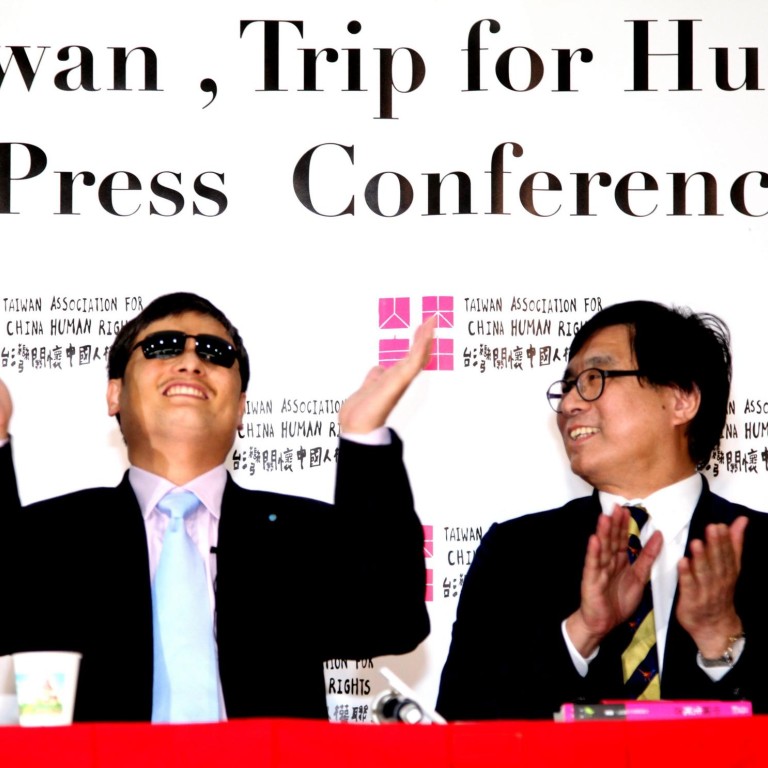
Democratisation of China inevitable, blind activist Chen Guangcheng says
Blind activist Chen Guangcheng says the weight of demands from ordinary mainlanders for rights will become an irresistible force
Democratisation of the mainland was "inevitable" as the growing demands of ordinary people for rights put immense pressure on the government, blind legal activist Chen Guangcheng said yesterday.
"The sense of crisis is felt deeply by the authorities and is making them very uncomfortable," said Chen, who sparked a diplomatic crisis last year when he escaped house arrest and took refuge in the US embassy.
"The democratisation of the mainland is inevitable," he told a press conference in Taipei. "(This) could spell the end of autocracy for all of humankind."
Chen is on a two-week visit to Taiwan at the invitation of a local human rights group.
Taiwanese President Ma Ying-jeou's spokeswoman said Ma had no plan to meet Chen but welcomed his visit.
She said Ma hoped Chen could "visit as many places as possible and experience the state of civil society, democracy and human rights" in Taiwan.
Chen said it was not too important whether Ma saw him or not, but people should see it in the context of "the struggle between the free and autocratic worlds". Ma has been trying to improve ties with Beijing.
Chen said the success of democracy in Taiwan was "causing fear" among the mainland authorities. Claims that democracy was unsuitable for Chinese society were "a lie".
He urged Hongkongers and Taiwanese to be vigilant in protecting their rights. If Hong Kong did not influence China with its rule of law, the mainland's "rule of man" would overcome Hong Kong, he said, and "if Taiwan's democracy cannot influence and help improve the mainland, autocracy will encroach on Taiwan".
Chen accused Beijing of spending billions of US dollars every year on "stability maintenance" - the detention, harassment and surveillance of dissidents and activists to stop their rights advocacy. A self-taught legal activist, Chen spent years in extra-legal detention and more than four years in jail for exposing forced abortions in rural Shandong province.
"No other regime in the world is more vigilant against its own people," he said.
Chen went to the US in May last year after sheltering at the US embassy. New York University accepted him as a special student, granting him free tuition and providing daily necessities including housing, food and translators for his family of four.
Chen sparked controversy last week by issuing a statement accusing NYU of ending his fellowship after coming under "unrelenting pressure" from China. The university insisted that his fellowship was always meant to last one year. He side-stepped a reporter's question yesterday when asked to prove his claim.
He also declined to comment on a report that a supporter in the US gave him an iPhone and iPad that had software installed to track his activities.
In Beijing, foreign ministry spokeswoman Hua Chunying , when asked to comment on Chen's visit to Taiwan, said "every Chinese citizen has obligations to abide by the constitution and laws of China and refrain from doing things that will hurt the national interest", Associated Press reported.


